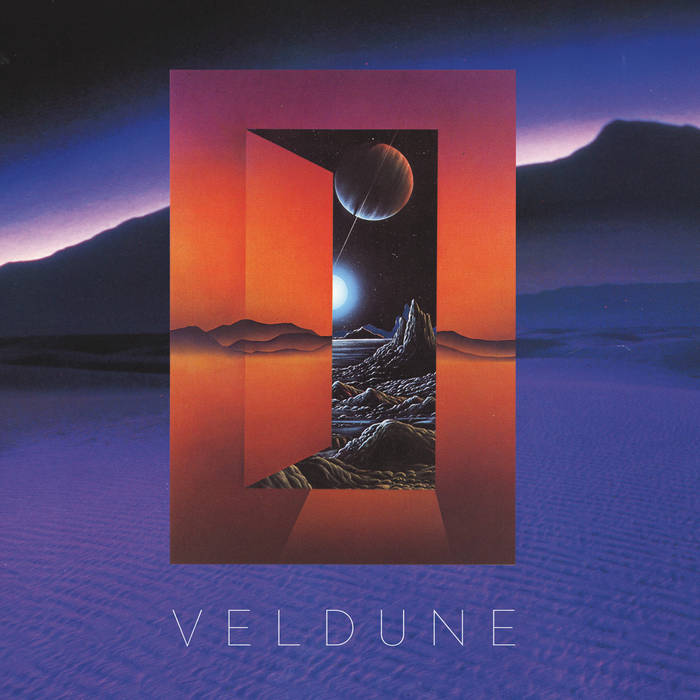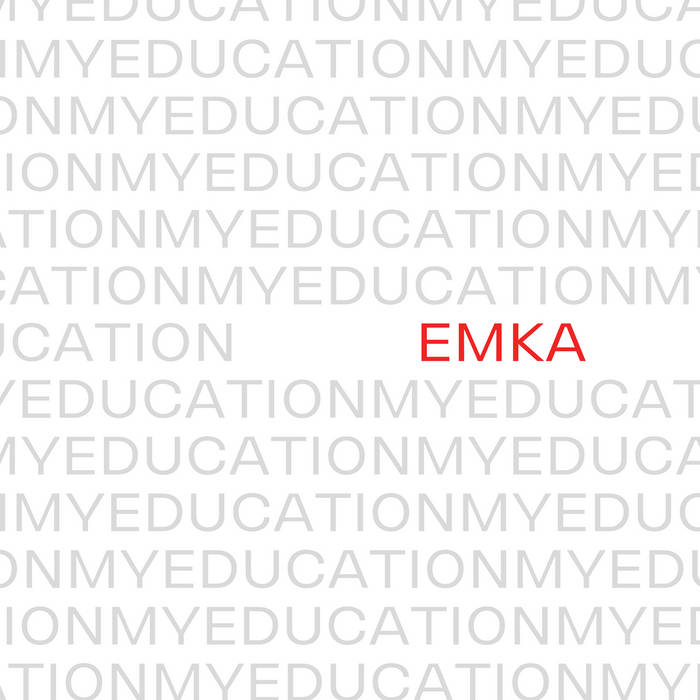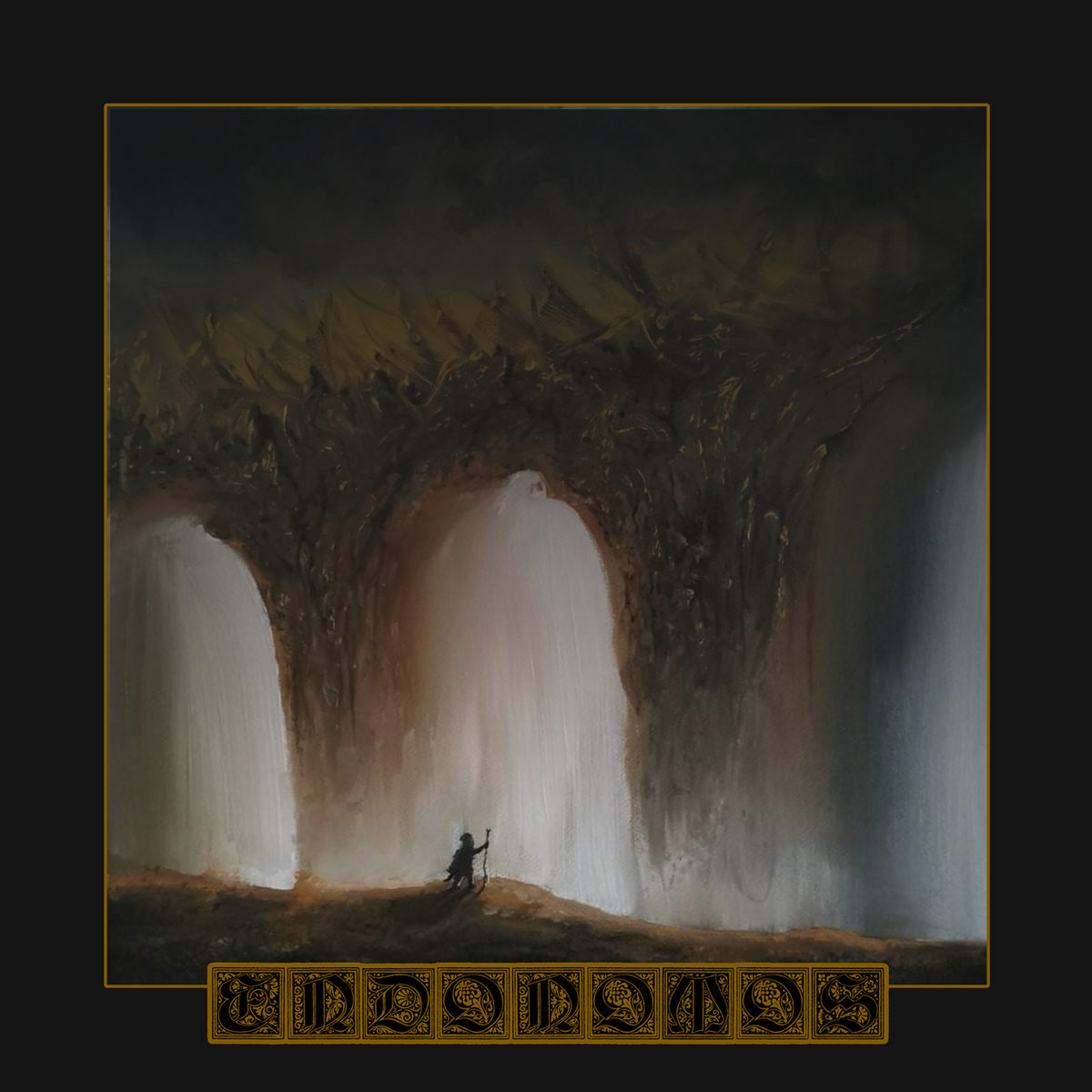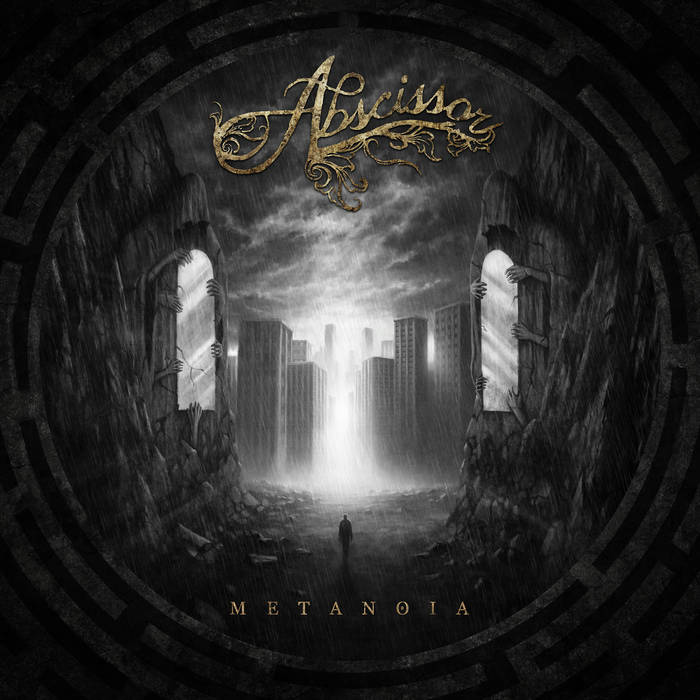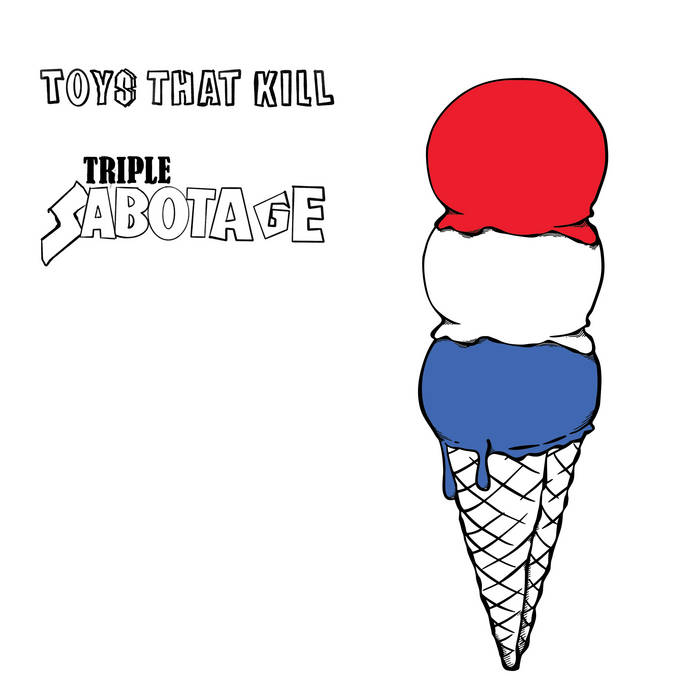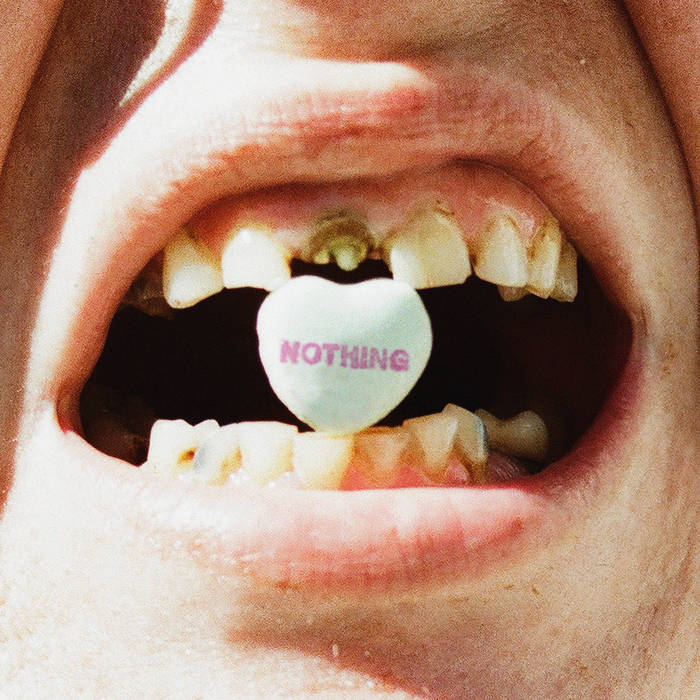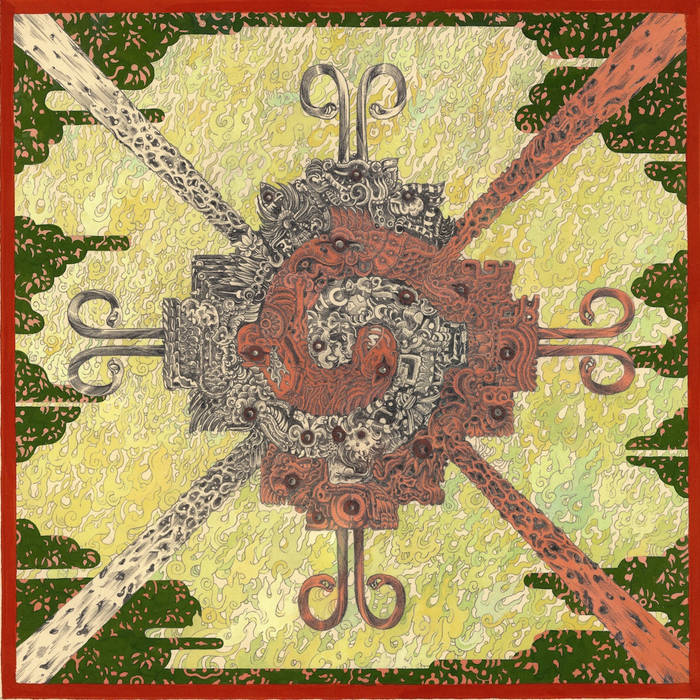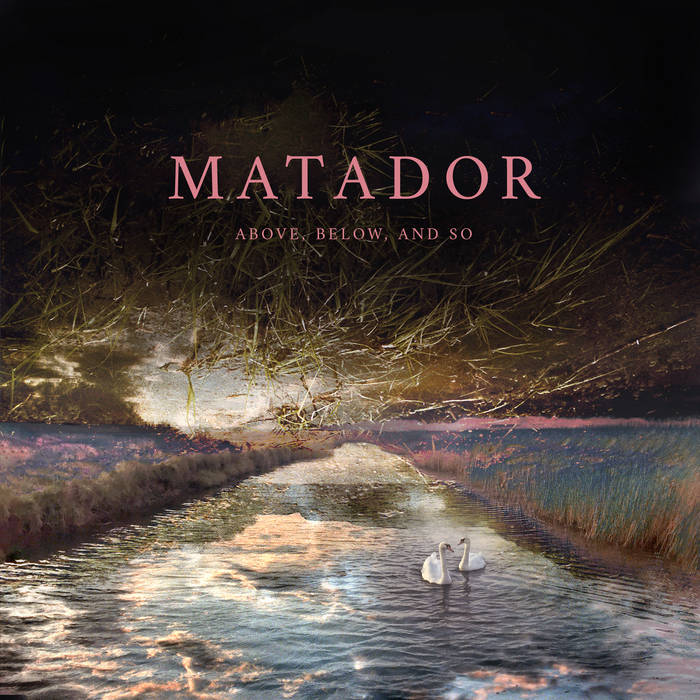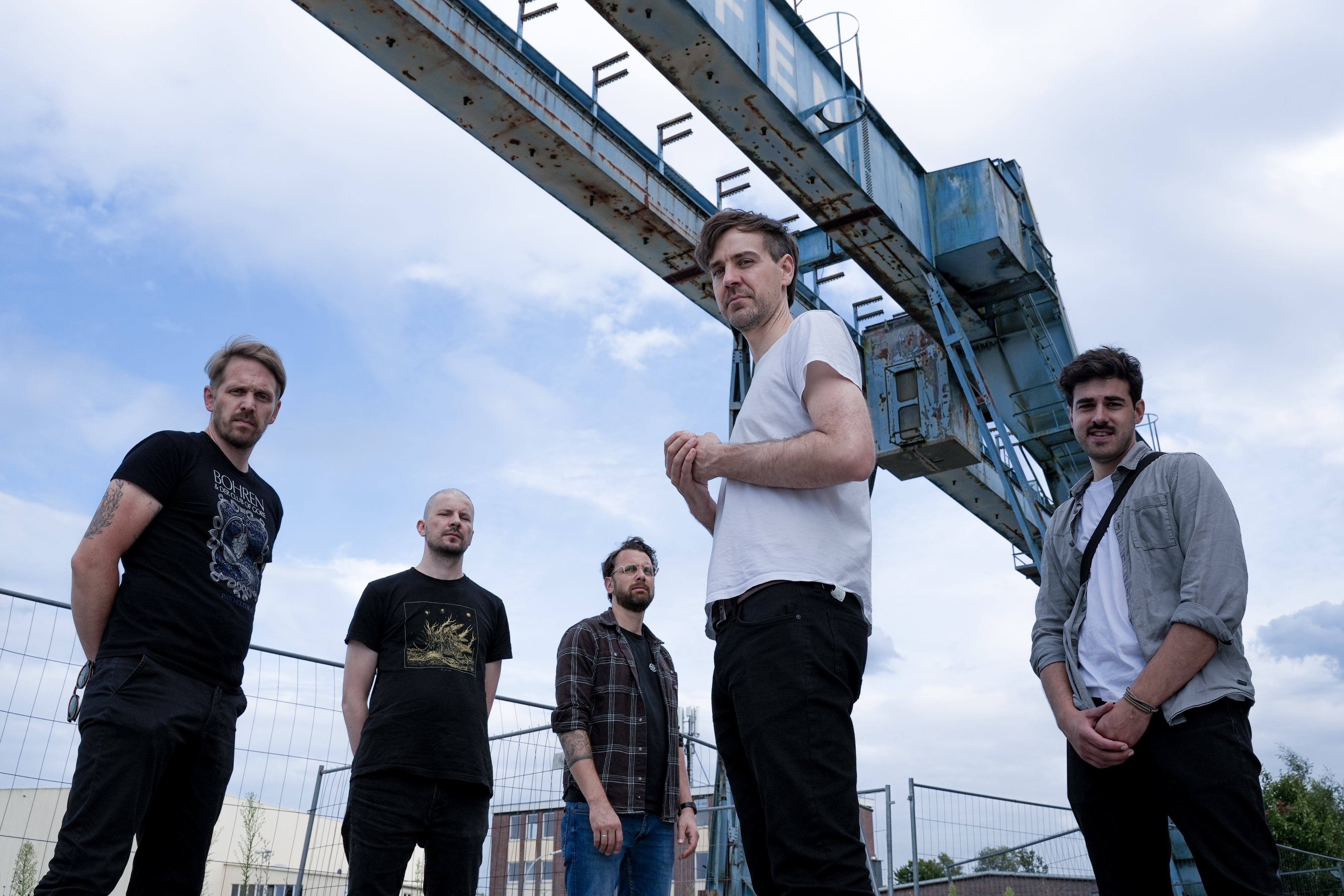Sabbath Assembly were unique. Conceived initially as a performance art collective, its rotating cast of devotees released several albums exploring the liturgy of the Process Church of the Final Judgment, a poorly understood 1960s religious movement that eventually fell prey to circumstance and exploitation. Was it Gnosticism, Satanism, Reformed Christianity? No one could seem to agree. (What if we just chucked it all to worship women and animals?) When its core membership emerged, the band wed its mysticism with materialism to explore new sounds over several more albums—somewhat of a contemporary intellectual merger of the metal-jazz stylings of Black Sabbath and folk-rock ethos of Fairport Convention. Sounds awesome? It was. So, when three wayward disciples announce they will congregate anew to recapture a certain songcraft, it’s natural to wonder: is this Sabbath Assembly 2.0? Decidedly not. On their eponymous debut, Veldune travel new westward routes, awash in the variegated colors of a sunset horizon as they chase the evanescent union of earth and sky.
Veldune arose from the sympathetic collaboration of vocalist Jamie Myers (ex-Hammers of Misfortune) and guitarist Kevin Hufnagel (Dysrhythmia, Gorguts, Vaura), who co-wrote these songs before enlisting the support of fellow veteran Sabbath Assemblist Johnny DeBlase (Deveykus, Many Arms, Zevious) on bass and fellow Dysrhythmiac Jeff Eber (Zevious) on drums. Together, what they have conceived is a mature mix of rock, folk, and pop elements tinged with nostalgic longing for the breathless ardor of adolescence—what Joshua Strachan, in copy for the album, evocatively calls “desert noir.” What’s that? Let’s find out.
As it turns out, Veldune is an act you’d want to catch at The Bang Bang Bar, where sex and danger roil as thick and heady as body heat and alcohol vapors and the guitar action is as high and gleaming as the patrons. Who among us is unable to recall the captivating vision of Julee Cruise under those lights, as we felt some crucial barrier between the spirit and the flesh give way? It caused a whole generation to moan, “Oh, I’m having a Twin Peaks experience.” Listeners are liable to have that type of visceral reaction to Myers’ performance on this record, not because she sounds like Cruise but because she wields a similar mesmeric command with her voice, which has not a little White Witch sultriness to it. On many songs, she roots melodies in her lower vocal range, delivering lines with a husky quaver. During moments of relative separation in the instrumentation, such hesitancy allows her to convey an affecting vulnerability in line with the mood, though later in the development of a song’s arc she will glide up and down the registers with pinpoint accuracy to create haunting, slightly askew harmonies and choruses. Myers’ lyrics also catch you off guard with sudden existential undertows, as in “Willow Sways” when she dives headlong into the ecstatic mysteries concealed beneath desire: “The water draws me to its edge / Draws me closer with her depth / The stillness beckoning (ah) … A glass-like surface mirrored back / A little trembling of flashback / Falling into the abyss.”
Hufnagel’s guitarwork (he also plays synth) masterfully displays an active right hand parsing out chord progressions with shimmery, unexpected embellishments, while his remarkably compact, inventive solos give tasteful shape and presence to songs. A bright reverb runs throughout like a trail of enticing candy, though the attentive ear can detect stealthier sorcery at play in the fretwork. If you’re anything like this Gretel-guy, you’ll traipse willingly into those spiced, sugary melodies fully aware they’re traps, yet unable to resist the curious thrill of witnessing them spring shut.
It sometimes feels like, were it not for the reliable mooring provided by the rhythm section, Myers and Hufnagel would float off into the ether. Despite their seductive pop physicality—and this is music for the bedroom as much as the dancefloor—many of these songs are dizzyingly constructed, so it is to DeBlase’s and Eber’s credit how well they supply necessary gravity and propulsion. While I don’t drive much in this COVID era, I look forward to spinning this album on my next road trip and hearing DeBlase’s rich molasses basslines roll out like unbroken highway, while Eber’s drums—particularly the bounce from snare to toms—steer me smoothly through the switchbacks.
“The Night Is for Dreamers” establishes the album’s dusky mood, alternating reverb-laden chords with arpeggios and bent notes over a largely snareless beat. Singing unadorned, Myers teases themes of sexual desire and wish fulfillment, timidly at first, until abandoning herself to the thrill of shared dissolution: “Come to me, I can take your place / Push me to the edge and back / We’re skin to skin, just let me feel once more / Just pull me in.” “Willow Sways” encapsulates the tension-filled balance of loft in the vocals and guitar with gravity in the bass and drums. The primary guitar part, which develops from a ringing alternate-picked figure combined across bars with ingeniously interlaced pull-offs, is a thing of weird beauty. Myers’ harmonized choruses delight as verse punctuation and take us deeper into the song’s mythical symbols of desire. “This Time Around” hides a “flashing blade” near its heart, though sheathed with delicate chords and embroidered with a solo of exquisite feel. The first of three songs about seizing the moment, it’s followed by “Chasing Down the Sun”, which will have you singing its anthemic chorus after only one listen: “On the full-on horizon where the old gods touch the sky / They left behind a serpent chasing down the sun / This mortal coil has all but washed away / On a trail with no end, a night without day / A melody echoes from beyond / Beckoning.” “The Road Ahead” concludes with a rondel of funky bass, revolving beats, and dissipating chords. When Myers casts her lyrics toward the shadow of the great beyond, the songs grow more pensive. In “A Glimpse of Being,” she mourns, “We lost our way / All our struggle has been in vain / Where nothing is but a mask, it seems / And we look ghostly for relief,” before the band rushes headlong into lush expressive chords played over a soft bed of synths. “Yearling Thunder” rides atop an irresistible beat that barely manages to corral its dream-within-a-dream visions. Built around a theme developed on both guitar and organ synth as they vie for dominance, “The Final Bow” closes the album with impressive drama. Aflame with visionary clarity, Myers delivers a formidable climax: “Parading fearlessly your solemn vow / Give up the ghost, come take the final bow.” At last, the organ overtakes the guitar to reveal the song’s essential form as hymnal fugue, the much-portended ethereal transcendence finally achieved.
Veldune are a congress of musical familiars with obvious affinity and rapport grounded in past collaborations, but they are their own entity. Their debut album shows them chasing a new, unexpected sound that is at once cohesive and promisingly variegated, as it is in these musicians’ nature to rise above boundaries. Let’s see where this highway leads next.

